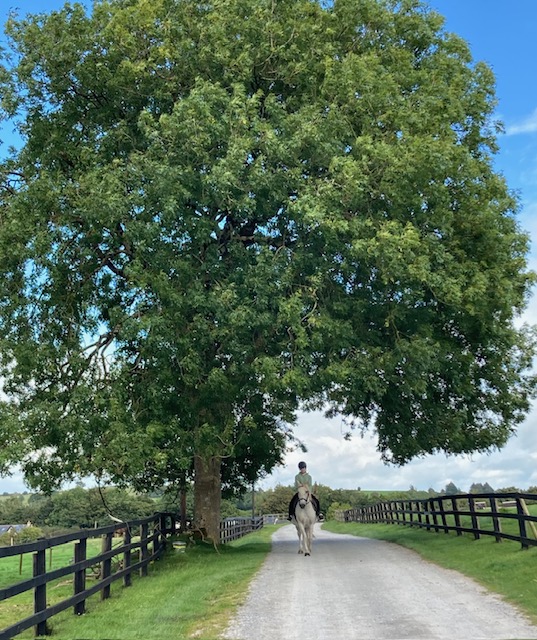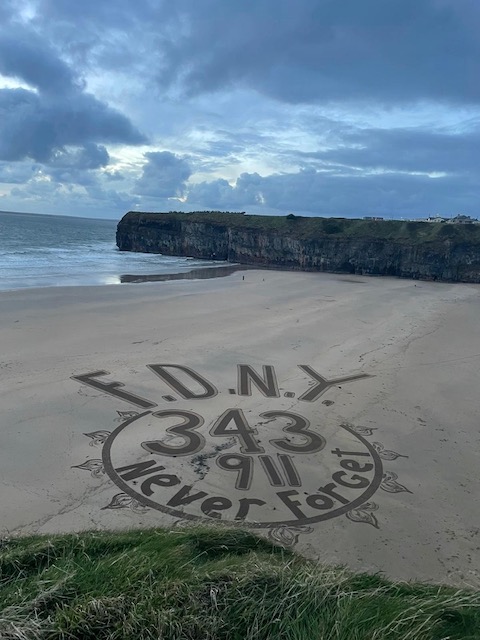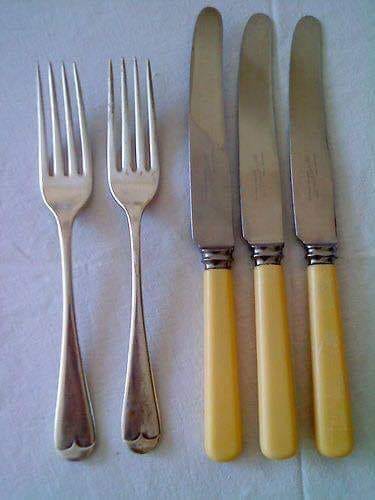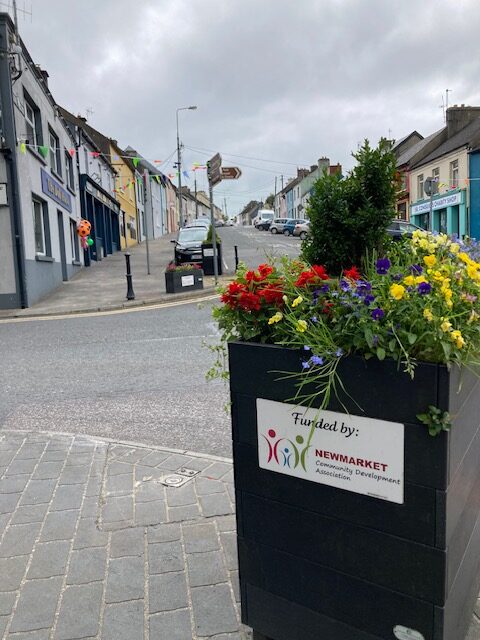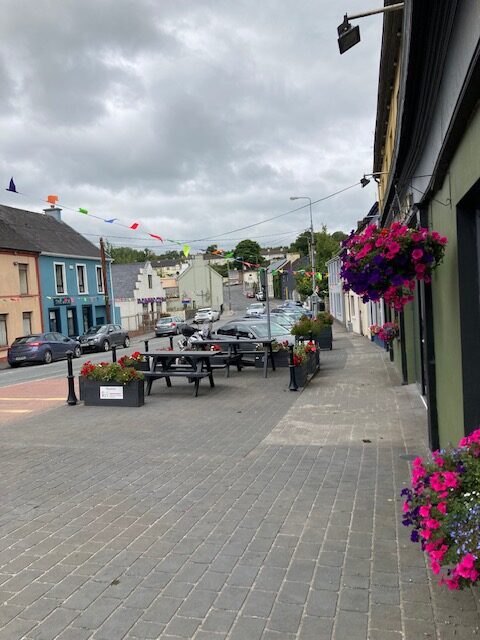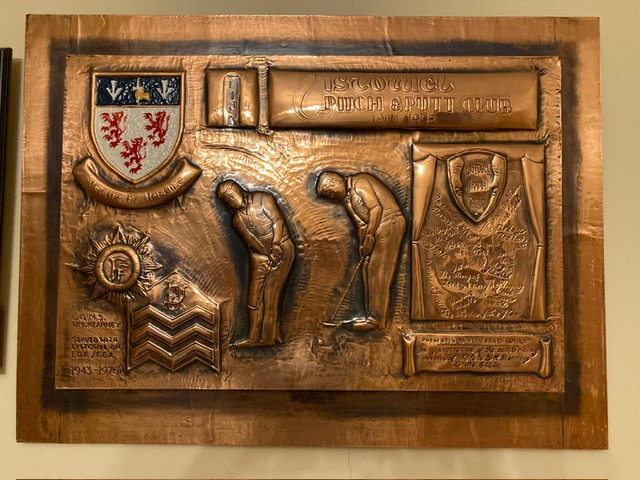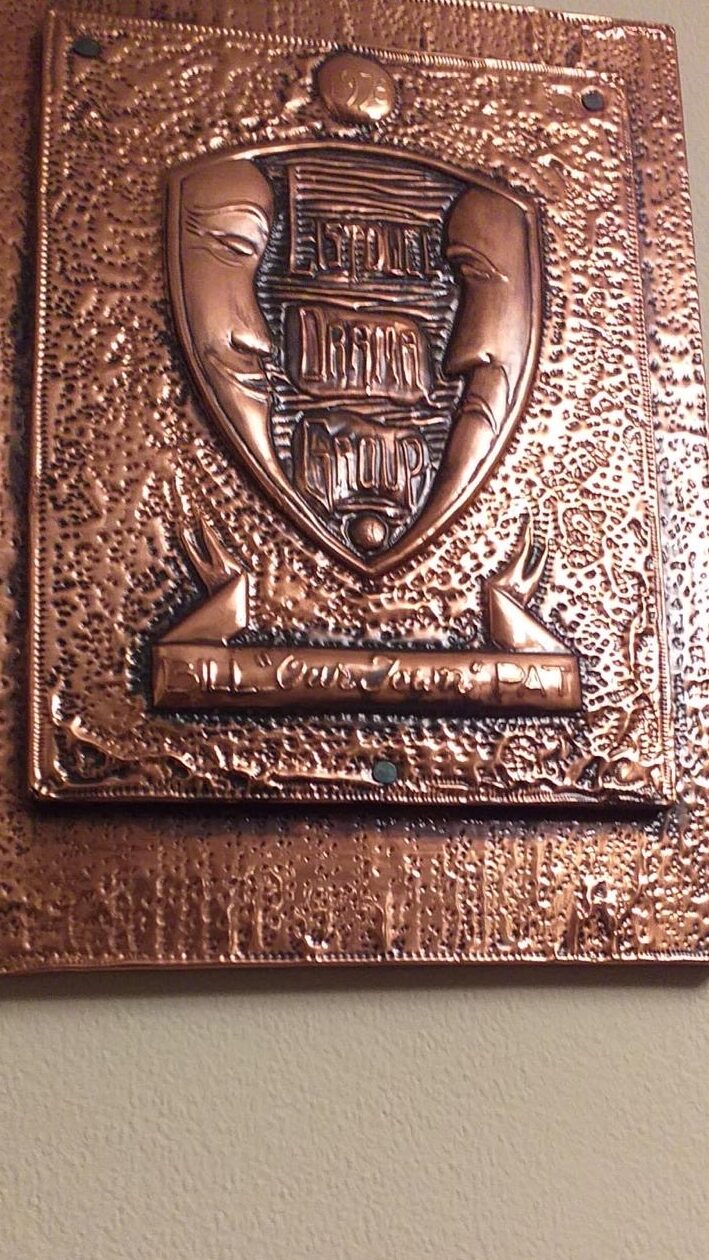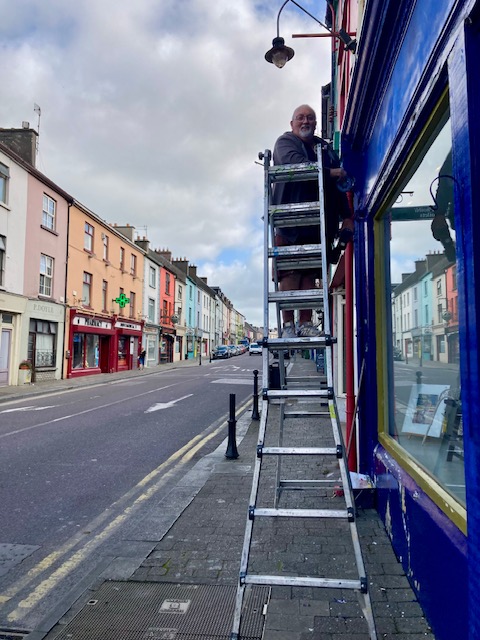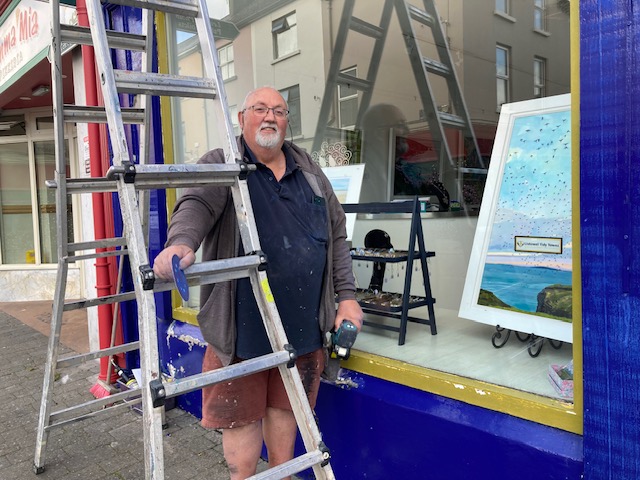
Chris Grayson in Killarney on January 7 2025
<<<<<<<
Molly’s Visit

I had the pleasure of Molly’s company for a few days before Christmas.
<<<<<<<<<
In Ballincollig
Nothing beats a family Christmas. I spent it in 2024 with my family in Ballincollig.

Church of St. Mary and St. John

Nice touch from the 220 bus
<<<<<<<<
A Postbox Story
Chris Courtney on Facebook

P & T POST BOX
‘SE’ Saorstat Eireann (Irish Free State) post box in County Monaghan. Cast at the Jessop Davis foundry Enniscorthy sometime between 1922 and 1937. (Source: Irish Archeology). Photos also include Thomas Jessop Davis born 1864, died 1946, founder of St. John’s Ironworks and Foundry which was located in Enniscorthy, County Wexford. Wall tie plates, Manhole covers, Agricultural machinery components, ESB and P and T items testify to some of the many contracts he undertook at the Enniscorthy plant.
<<<<<<<<<
Acts of Neighbourliness
The internet was alive with amazing stories of helpfulness during the recent cold snap.

Beatrice shovelling snow on Charles Street

Pat rescuing a stranded motorist

Eddie cleared my path so that I could safely go to his house for Sunday lunch.

This is a milk delivery to Centra in Dromcollogher. The internet was awash with images of good samaritans delivering milk, drinking water, vital medicines, food, post and other essentials to stranded neighbours, friends and strangers.

Bridie Murphy’s picture of her husband heading out to help a neighbour almost broke the internet and rightly so. This picture of early January 2025 in Co. Limerick says more than 1,000 words.

In the midst of it all Mattie Lennon found a laugh.
<<<<<<<<<
Carmel Hanrahan’s Memories of Growing up in Listowel
Before you read today’s instalment, I have to give you an update.
Muireann O’Sullivan remembers the milkman. Here is Muireann’s comment
I think Carmel’s man on a bike delivering milk:cream was Martin Daly RIP late of Market Street ( the house now lived in by Máiréad Carroll). He certainly delivered to Charles St. on his bike. The late Tom Scannell, Skehenerin, took over the milk round when Martin retired. Our milk was now delivered in glass bottles with silver foil tops. The delivery was made extraordinarily early and, when we collected it from the window sill or doorstep, the cream would have risen to and settled on top – ready to pour on our porridge.
If you have commented in the past, you will probably have noticed that comments no longer appear. I have no idea why. I will try to fix it. Meanwhile dont stop commenting. I can see and approve them even if I can’t upload them to the blog.
Carmel’s Story continued
… Tony O’Callaghan lived at the end of the road and I remember some of his brass works from the house especially a beautiful piece at the fireplace. Working up the road, there were the Landers, then the Jones, Mai Watkins – sister to Aggie Nolan who filled in as surrogate mother to my sister and myself, a wonderful person and I can’t do her justice here, O’Donnell’s, Crowley’s, Us, Givens, Molyneaux’s, Nurse McMahon, Fitzmaurice’s, Moore’s, and a little further up O’Sullivan’s. (I hope I have the order right).
The Givens lived next door. I can still remember our first morning in the new house when Seamus called to my dad through the fence enquiring if we were coming out to play. Seamus, John and Peter were the sons of the house. Pat had been to America which seemed a very exotic and exciting thing to us at the time. Lisha and Pat drank coffee every day after lunch (my first introduction to that magic concoction) and I used to be given a cup also, made on milk and a spoonful from a little tin of Maxwell House powdered coffee. Thus started my lifelong passion (some would say obsession) for anything coffee.
Paudie and Sadie Fitzmaurice lived further up the road. On Sundays, dad gave Sadie a lift to 12 o’clock Mass. She used to allow several of us to come in and play with Mary’s dolls house which with retrospect was a spectacular affair and David’s Fort and his soldiers. Personally, I remember that I preferred the soldiers. Apologies here to Mary and David for commandeering their toys in their absence, but a great memory. I also recall that Mary had a pair of Beetle Boots (white, if I remember correctly), the closest we ever got to a pair and a collection of Beetles records. You must remember this was in the late 60’s when things like this were not common place. Hilda O’Donnell also had a record collection which contained a lot of Elvis records. I remember that Paudie went on holidays several times to Spain and returned with a gift for every child on the road. A doll in Spanish costume was one and a Fan on another occasion. I don’t remember what the boys got (too busy admiring my own).
More tomorrow
<<<<<<<<
A Poem for all the stressed parents with children under their feet for too long

<<<<<<<
A Fact
Food rationing was introduced in the UK in 1940 due to shortages brought about by WW2.
<<<<<<<<

